
9815
.pdf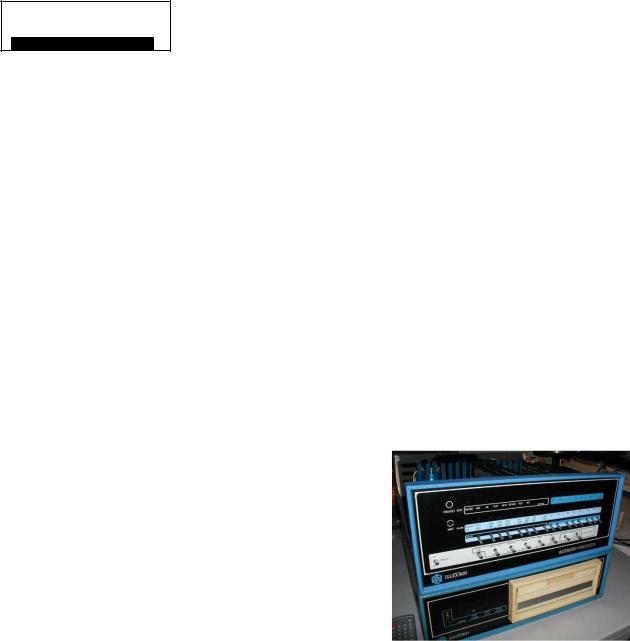
80
Activity 1
Computer Revolution
The idea of information age is usually linked to the concept
of a Digital Age, Digital Revolution or Computer Revolution.
1.You are going to read the article by Bill Gates, the Chairman and Chief Software Architect of Microsoft Corporation, about the beginning of computer revolution. Before reading decide whether you think these statements are true
(T) or false (F).
1.Bill Gates created the first desk-top computer Altair 8800.
2.BASIC programming language was rather simple, so everyone could use it.
3.At first Microsoft software was not very popular among programmers.
4.Today we completely rely on computers to run our lives and businesses.
5.We have fully exploited the PC’s potential.
2.Read the article and check your answers.
For me the personal computer revolution started in the mid-1970s, when my friend Paul Allen and I saw a magazine article about the MITS Altair 8800. The Altair was the first build-it- yourself computer kit for hobbyists. For a few hundred dollars, MITS would mail you a few bags of parts and some photocopied instructions. After
some careful soldering*, you had your own computer, about the size of a bread box, with rows of switches and blinking lights.
It wasn't much to look at and it wasn't terribly useful, but it felt like the start of a revolution. Until then computers were used mostly by technicians in air-conditioned rooms. Few people had the opportunity even to see a computer and even fewer got to use one. But the Altair was a computer that people could put on their desks, and what
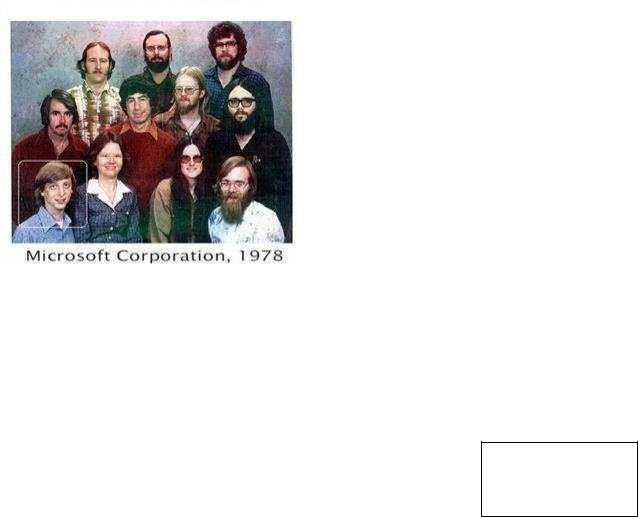
81
they could do with it was limited only by their imagination — and the modest capabilities of Intel's 8080 microprocessor.
We knew that microprocessors would become cheaper and more powerful, making personal computers increasingly capable. We also knew those computers would need software to make them do useful things. So Paul and I founded a company we called Microsoft that we hoped would meet this need.
Our first product was a version of the BASIC programming language that could run on the Altair. Unlike many other languages available at the time, BASIC was relatively simple to use. After a few minutes of instruction, even a nontechnical person could start writing simple programs.
For its time the Altair was a huge success, and thousands of programmers
used our software to make it do interesting and useful things. Since then the PC has evolved from a hobbyist's toy into a powerful tool that has transformed how we work, learn, play, and keep in touch. And it has created an industry that employs millions of people and plays a leading role in our global economy.
Computing has made many evolutionary leaps over the decades - from the command line to the graphical user interface, from stand-alone PCs to a globally connected
Internet. But we're now seeing an even more fundamental change. We're in what I call the "digital decade," a time when computers are moving beyond being merely useful to becoming an essential part of our everyday lives. Today we use computers for discrete tasks—like doing e-mail and paying bills — but in the years ahead they'll play a key role in almost everything we do. We'll rely on them to run our lives and businesses. We'll want them to keep us informed and entertained. We'll expect them to be wherever we need them. It will be an era of truly personal computing.

82
Many of our early dreams for the PC have already come true. They can recognize speech and handwriting, create realistic animation, and enable people to collaborate, communicate, and find information around the world. But we've barely scratched the surface** of the PC's potential, and I'm incredibly excited about the amazing innovations that are just over the horizon.
*soldering - joining two pieces of metal together by melting a small piece of soft metal
**scratch the surface - to deal with only a very small part of a subject or problem
(Adapted from http://www.greatachievements.org/)
Activity 2
Vocabulary Focus
1. Match the words to form expressions from the
text and translate the expressions into Russian:
evolutionary |
change |
discrete |
tool |
global |
leaps |
fundamental |
economy |
essential |
success |
modest |
capabilities |
powerful |
tasks |
huge |
part |
|
|
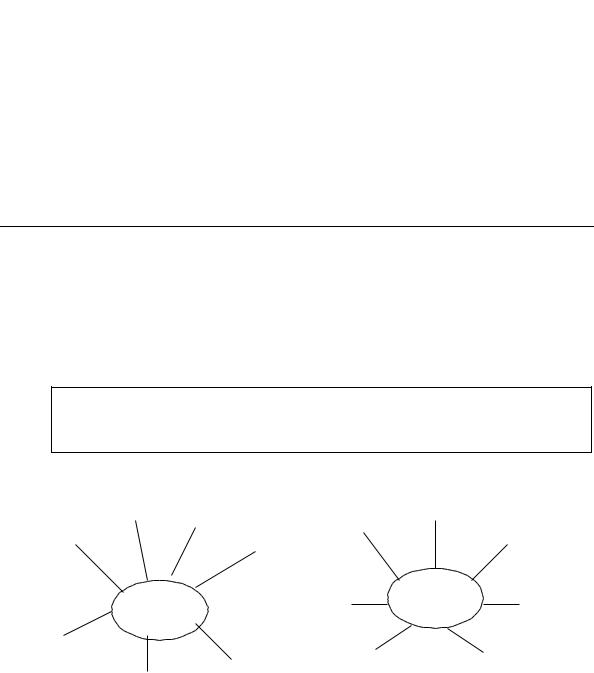
83
2. a. Match the following words/expressions in English with their Russian
equivalents:
|
meet the needs |
распознавать речь и почерк |
|
run our lives and businesses |
оплачивать счета |
|
play a leading role/a key |
информировать и |
|
role pay bills |
развлекать |
|
keep us informed and |
управлять нашей жизнью и |
|
entertained recognize speech |
делами удовлетворять |
|
and handwriting keep in touch |
|
|
|
b.Make up your own sentences using these expressions.
3.a. Fill in the diagrams with the following words from the box:
an effort, homework, money, your best, a mistake, progress, research, a noise, someone a favour, a phone call, nothing, a decision, business
do
make
b. Find examples of the phrases with do and make in the text above.

|
|
|
|
|
|
|
|
|
84 |
||||
c. Complete the questions below with make or do in the correct form: |
|||||||||||||
1. |
Are you generally good or bad at |
|
|
decisions? Does it depend on the |
|||||||||
|
kind of decision? |
|
|
|
|
|
|
|
|
|
|
|
|
2. |
In which areas do you think you are |
|
|
|
most progress in your |
||||||||
|
studies? |
|
|
|
|
|
|
|
|
|
|
|
|
3. |
When was the last time you |
|
someone a favour? What was it? |
||||||||||
|
|
|
|
|
|
|
|
|
|
|
|||
4. |
How do you feel when you find out you |
|
|
|
|
mistakes in your last test? |
|||||||
5. |
Have you ever |
|
research? In what subject? |
||||||||||
6. |
When you have holidays do you enjoy |
|
|
|
nothing or do you like to be |
||||||||
|
active? |
|
|
|
|
|
|
|
|
|
|
|
|
7. |
How do you feel when your neighbours |
|
|
|
|
noise? What do you |
|||||||
|
usually do? |
|
|
|
|
|
|
|
|
|
|
|
|
d. Ask and answer the questions.
Activity 3
Pronunciation
Put the words from the boxes in the correct columns
according to the pronunciation of the letters in bold:
Technology, personal, electric, clearly, completely, rely, widespread, terribly, technician, even, microprocessor, key, cheaper, increasing, need, version, success, learn, employ, leading, economy, leap, decade, fundamental, essential, discrete, ahead, era, early, dream, recognize, speech, realistic, people, incredibly, excited, period, research, service.
as in pen |
as in clean |
as in exam |
as in term |
as in hear |
|
|
|
|
|
|
|
|
|
|
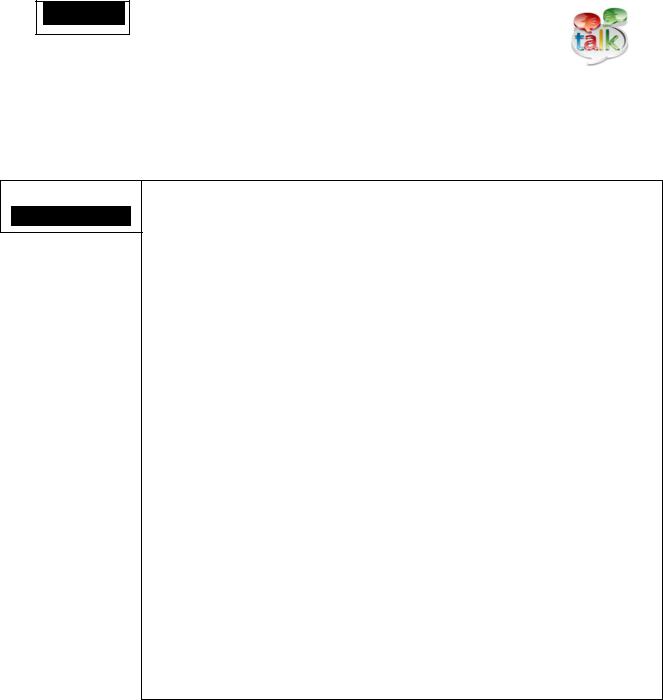
85
Discussion |
Discuss the following questions: |
|
1.What was your first computer like? What tasks did you use it for?
2.What role do computers play in your life now?
3.How will computers change in the future? What functions will they perform?
Activity 4 Grammar review
Present Perfect
We use the present perfect to:
talk about actions that continue from the past to the present.
He has worked as an engineer for more than 20 years.
(= He is still an engineer.)
talk about past events that have a result in the present.
The role of women has changed over the past 100 years.
talk about life experiences.
He has been to many countries on business.
The following time expressions are used with the present perfect: since, ever, never, yet, just, already, for, so far, recently.
Present Perfect and Past Simple
1.We use the past simple for completed actions that happen in the past. Because the time reference is past, we use time expressions that refer to
finished past time.
John passed his driving test last week.
Fifty years ago people didn’t have personal computers. Bill Gates and Paul Allen founded Microsoft in 1975.
2.The decision to use the past simple or present perfect depends on how we see the event. If we see it as related to the present, we use the present perfect. If we see it as completed in the past, we use the past simple.
I’ve known Mary for many years.
(= We are still in touch.)
I knew Mary when I was at college.
(= We don’t keep in touch.)
(See page 87)
1.Find examples of the past simple and present perfect in the text above.
2.Choose the right answer.
1. When |
|
the company? |
a)have you joined
b)did you joined
c)did you join
d)have you ever joined

86
2. |
|
in Germany? |
a)Did you ever worked
b)Have you ever worked
c)Worked you
d)Didn't you have worked
3.That's the best presentation
a)I never heard
b)I didn't hear
c)I heard
d)I've ever heard
4.He's the most creative person
a)I never met.
b)I never meet.
c)I've ever met.
d)I've never met.
5. |
|
to him last week. |
a)I spoke
b)I've already spoken
c)I didn't spoke
d)I speaked
6. The reason I look so brown is that |
|
from a |
business trip to Spain.
a)I come back
b)I came back
c)I never came back
d)I've just come back
7. It's obvious that |
|
your homework. |
a)you haven't done
b)you didn't do
c)you don't do
d)you do not

87
Activity 5
Social Media
Social media is everywhere. Social media connects people and businesses across continents and it is a hub for both great and useless information.
Just to put everything into scale, there are currently 7.5 billion people on this planet and 2.89
billion of them can be found on some sort of social media platform.
1. Read the topic sentence and think of three arguments for and against it. Add them to the table.
Social media has made our lives better.
Against |
For |
|
|
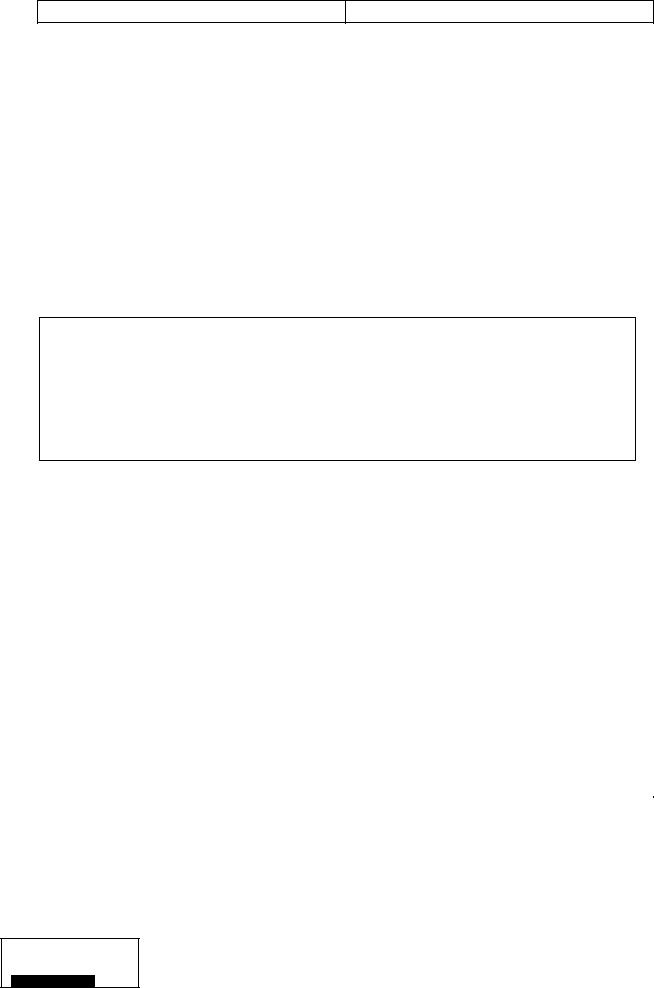
88
2. Look at the phrases below used to offer opinions, agreeing and disagreeing.
Write them in the correct columns.
I think … Yes, but … It seems to me … In my opinion … I agree. It’s good but … I totally agree. I am not really sure. I feel …
That’s true. I don’t think so. Yes that’s right. I don’t agree with that. Exactly! You’re right. Yes I see what you are saying but …
giving your opinion |
agreeing |
disagreeing |
|
|
|
|
|
|
3. Work in pairs. Discuss the statements in your tables giving different
opinions. Use the phrases in ex. 2 to help you.
Activity 6
Multitasking
89
In today’s digital world, people have more and more things competing for their attention. With access to so much entertainment and information, we often divide our focus between more than one task – whether it’s checking social media while working or studying or watching TV and talking on the phone at once.
1.Multitasking is often associated with productivity and it is believed that it can
improve performance. Do you agree?
Art Markman, cognitive psychologist, explains that multitasking is more like a timesharing activity: “Your brain can only actively think about one task at a time, so you focus on one task, then another takes its place. The shift is so fast you don’t even notice that you’re only doing one thing at a time. You feel like multitasking, but what you are actually doing is time-sharing.”
Multitasking in education
2.Do you often multitask while studying? Do you think it can have a negative impact on your learning? Why/Why not?
3.Now read the text about negative effects of multitasking and compare with your ideas.
Why Multitasking Is Bad For Students
Multitasking can have a number of negative effects on learning.
Since students aren’t giving their full attention to their studying, they aren’t as effective at absorbing the information. And without a solid comprehension of what students are learning, grades can start to get worse.
The negative effects of multitasking on students can also include:
A weaker grasp on the information being learned
